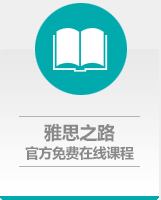|
Following the article in the previous issue about Student Self-Assessment, Ellen Head looks at using Can Do lists in an exam class and other FAQs.
Why use Can Do lists with an exam class?
Students in exam preparation classes often know exactly what they need to work on. On the other hand, there is a danger of the focus becoming too narrow. Research shows that test practice alone does not improve students’ overall language proficiency. (Qin Xie, 2013). Students can be demotivated by focusing constantly on exams especially if their goal seems unattainable. (Falout and Maruyama, 2004). Self-assessment can help students to deal with this situation by giving them a tool to break up the huge goal (passing the exam), into smaller steps. This encourages students to think about improving their skills and overall competence rather than focusing only on the exam.
If you are teaching an exam like IELTS, it is quite possible you will find a course book that incorporates a can-do section into each unit. If your textbook does have this, it is a good idea to keep track of how students are filling it in. Students often report that their teacher’s interest is a major factor in motivating them, so the list in the course book is useful to the extent that it is looked at and commented on by you, the teacher. One possibility is to photocopy the section and have them write on the photocopy or have them write the salient parts of the can do lists in their notebooks or on file paper. Looking at how they self-evaluate gives you a chance to feedback to each student (especially if you think they are too harsh or too soft on themselves).
If your course book has no can do checklists, you can create custom-made checklists based what you think students need to focus on for the exam. Some exams such as TOEIC and the Japanese Eiken have existing checklists on-line. Teachers preparing students for IELTS can use the descriptors for Speaking and Writing available at here to think about their own list (see below). In relation to Reading and Writing, there are no special descriptors for IELTS but you can use the European Language Portfolio descriptors available here:
Click here to read more.
You can get more help from the ALTE (Association of Language Teachers in Europe) project.
Click here to read more.
Why are there no ‘official’ Can Do statements for IELTS?
The process of self-evaluation with Can Do statements allows students to focus on one thing at a time, but for any test that claims to measure global proficiency, it could be misleading to limit the goals, even to quite a large set of Can Do statements. Students and teachers should not forget that the ultimate goal is to improve their overall proficiency. IELTS is referenced to European Language Portfolio Criteria mentioned above. The ALTE 2002 Can Do Project has a comprehensive set of statements which cover academic language use. So it is well worth looking at the ALTE Can Do Project if you want to set goals for improving EAP, including IELTS.
Are students honest when they do self-assessment?
Research shows that students have some kind of cultural and gender bias when doing self-assessment but when they get used to it they generally become more reliable. (De Saint Leger 2009, Galeghizadeh and Masoun, 2013). Guidance from the teacher helps. The whole purpose of using self-assessment is that students learn to think about their own assessment so if they cannot do it perfectly at the start, that does not matter very much as their perceptions will become more accurate if the teacher guides them skilfully.
Should student self-assessment be part of the semester grade?
This is more controversial! It depends on how mature your students are and what the purpose of the course is. You can decide this depending on your own particular context. It might be an idea to allow students’ own grades to be a certain percentage of the grade.
How do students know when they have improved?
The more you can provide opportunities for students to show off what they know to each other, to you and maybe even to their parents or students from other classes, the more effective their learning will be. So creating some special events such as presentations, poster displays of writing, blogs, speeches, and occasions for peer evaluation, will be helpful and exciting. Using video or tape-recording at the start and end of the course will help students to see how far they have come! Quantitative measures like ‘speed writing’ (how many words can students write in 10 minutes?) also develop their confidence and let them see an improvement quickly. Having goals outside of the exam can help students to maintain a focus on their global improvement, which can help them to stay motivated for exam studies. It is worth pointing out to students that improvement in language skill takes time. No test can measure their language ability perfectly but if they work steadily on various aspects of their English in turn, they will improve over time.
References:
ALTE (2002) (Association of Language Teachers in Europe) The ALTE Can Do Project: Articles and Can Do statements produced by the members of ALTE 1992-2002
Retrieved from here
Baleghizadeh, Sasan and Masoun, Ateih, (2013). “The Effect if Self-Assessment on EFL Learners’ Self-Efficacy”, TESL Canada Journal /Revue TESL du Canada, Vol. 31.1
Retrieved from here
De Saint Leger (2009) “Self-Assessment of Speaking Skills and Participation in a Foreign Language Class in Foreign Language” Annals Vol 42.1, pp. 158-178
Retrieved from here
Falout, J. and Maruyama, M. (2004) A Comparative Study of Proficiency and Learner Demotivation, The Language Teacher, 28.8 p 3ff
Retrieved from here
Qin Xie (2013), Does Test Preparation Work? Implications for Score Validity. Language Assessment Quarterly, 10.2.196-218. DOI: 1080/15434303.2012.721423
Submitted by Ellen Head, British Council language assessment consultant
|




